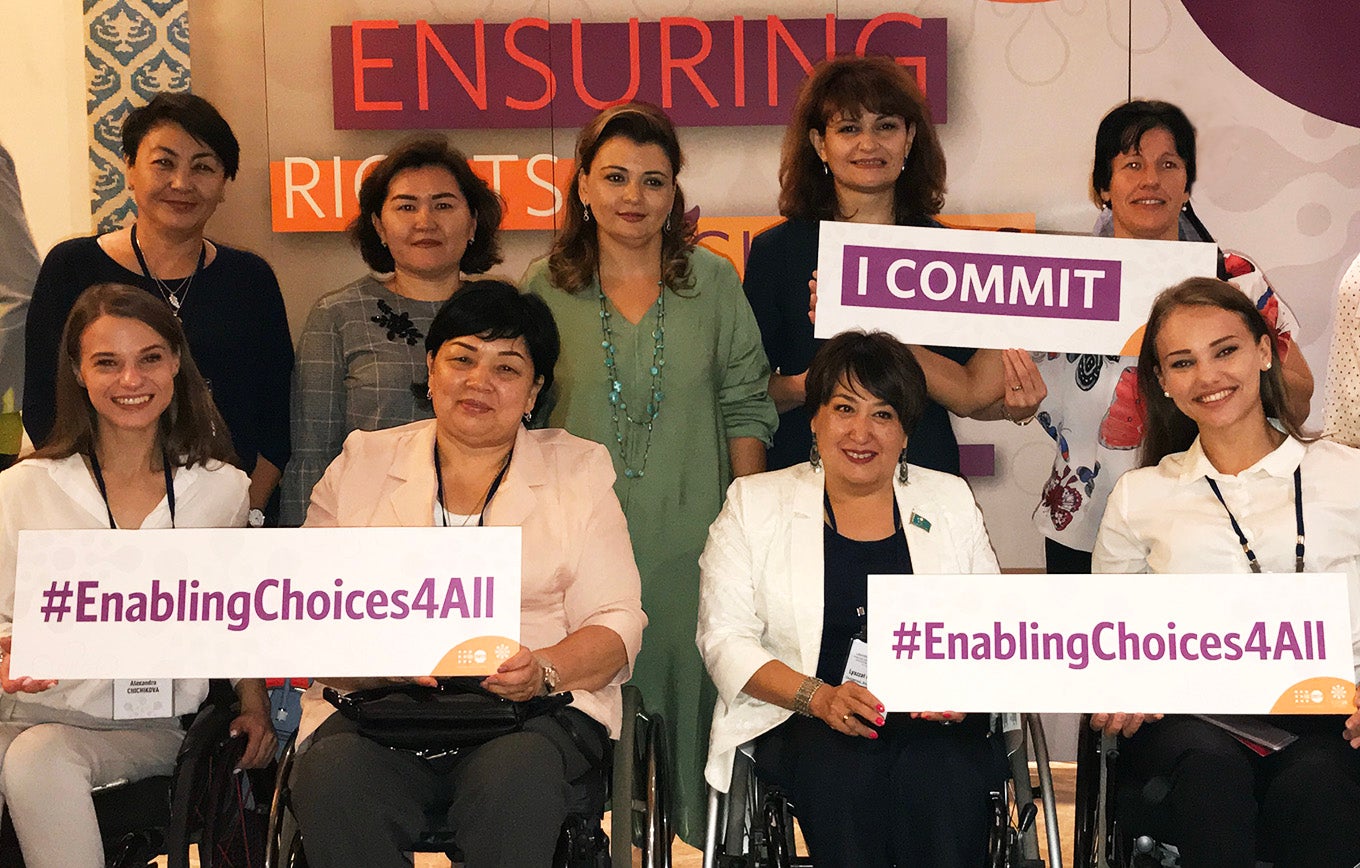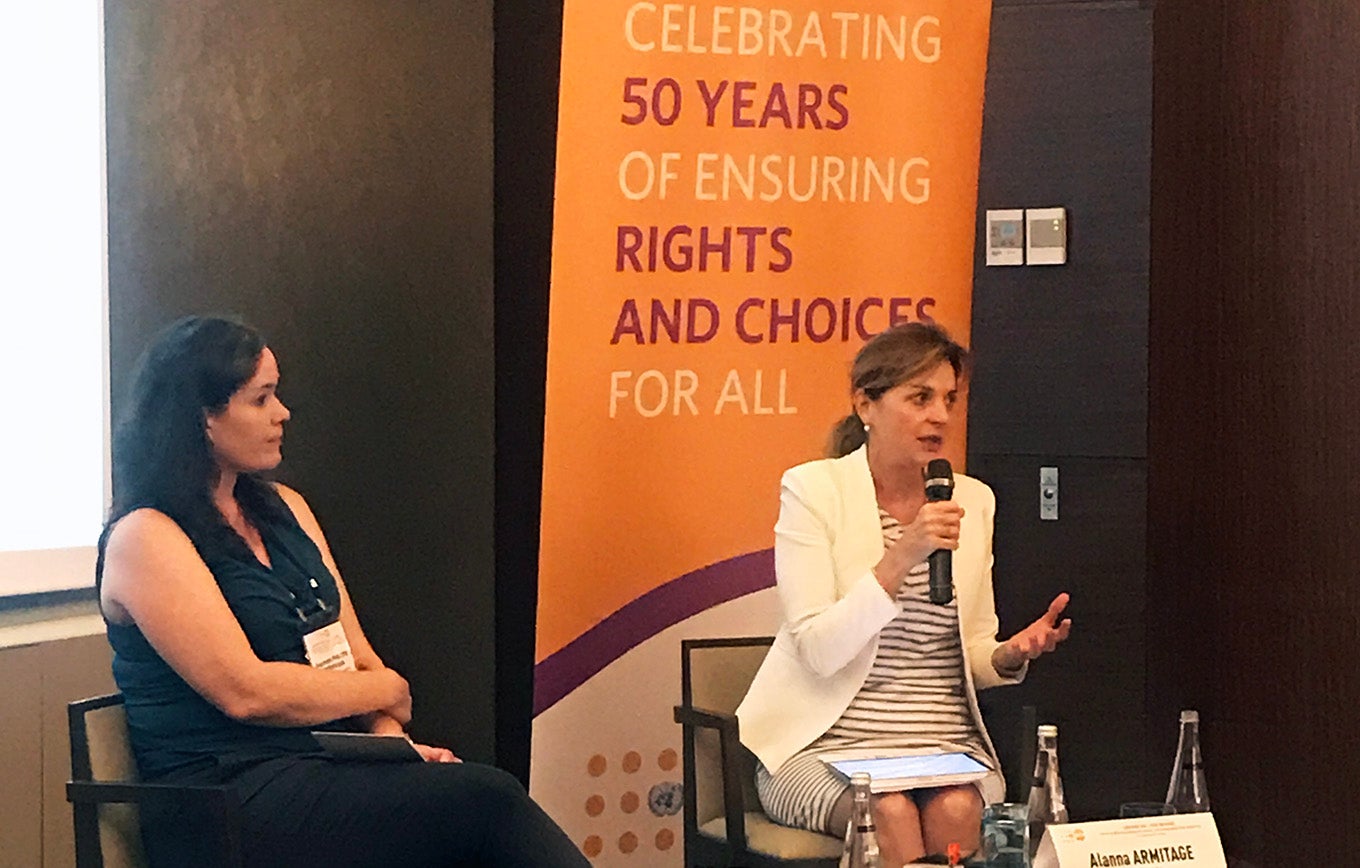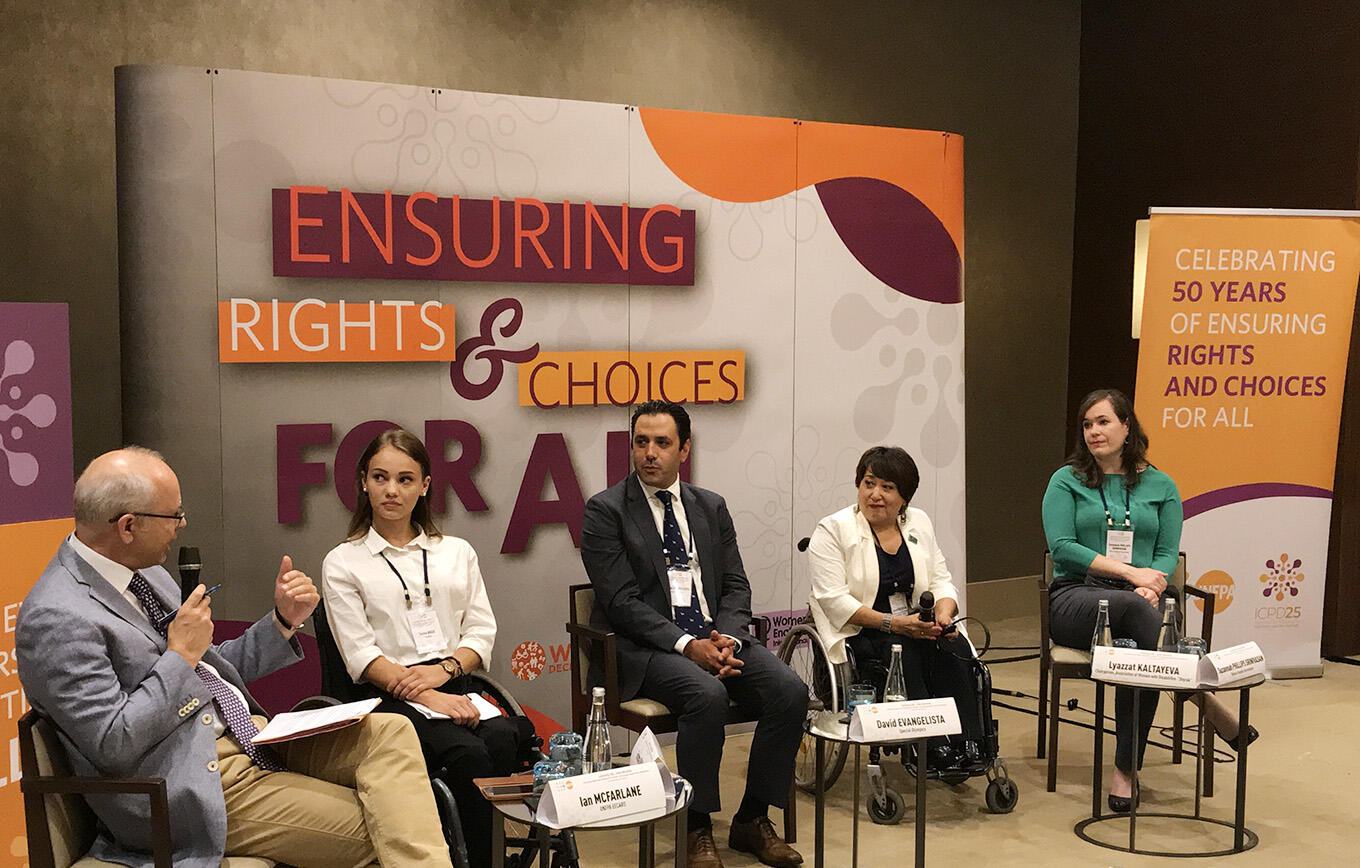ISTANBUL, Turkey — When Lyazzat Kaltayeva became disabled at the age of seven, she thought her world had narrowed forever.
“I couldn’t even imagine that I would have the possibility to go out freely into the street, to work anywhere but inside the house. I dreamed about being in love, but thought that was just a fantasy,” said Kaltayeva, a wheelchair user and the chairperson of Shyrak, an association of women with disabilities in Kazakhstan.
Many things have changed for the better for women and young people with disabilities, but much work still remains to be done to ensure their rights and choices, Kaltayeva and other participants emphasized at a three-day conference held in Istanbul in September.
“Young people with disabilities and women and girls in our community are not familiar with the subject of sexual and reproductive health and their right to it; they remain isolated and excluded from the community and considered as asexual beings,” said Fatma Bulić, project coordinator at Lotos, an information centre for persons with disabilities in Bosnia and Herzegovina.
“If you’re not able to learn about your sexual and reproductive health and rights, if you’re not able to see yourself as a mother — and to have people respect the fact that you are capable of having sexual and romantic relationships — that stops people from being able to live a fulfilling life,” said Suzannah Philips, deputy director of Women Enabled International (WEI).
UNFPA partnered with WEI, as well as the Spanish Agency for International Development Cooperation and the Basque Institute for Women, Emakunde, to organize the regional workshop, titled “Leaving No One Behind: Enabling rights and choices for women and young people with disabilities.”

Workshop participants display their commitment to enabling choices for all. PHOTO: UNFPA EECARO
The workshop, held 9 to 11 September in Istanbul, is part of a series of events being organized in 2019 to mark the 25th anniversary of the International Conference on Population and Development (ICPD) in Cairo. The events aim to celebrate the achievements made since then and push for full implementation of the ICPD Programme of Action adopted by world governments in 1994.
Laws in many countries — as well as the 2006 United Nations Convention on the Rights of Persons with Disabilities — protect the rights and choices of persons with disabilities when it comes to sexual and reproductive health and freedom from violence and abuse. But “the lived realities of persons with disabilities can be very different,” said Alanna Armitage, Regional Director of UNFPA for Eastern Europe and Central Asia.
Women and girls living with disabilities are exposed to higher risks of various forms of violence than those without disabilities, starting in childhood. They experience domestic violence at twice the rate globally of other women, and are up to 10 times more likely to experience sexual violence. But isolation, stigma, dependency on caregivers and other obstacles related to their disability make them less likely to report violence — and less likely to be properly assisted when they do.
Women with disabilities are also at higher risk of adverse pregnancy outcomes, but are persistently confronted with barriers to accessing information and services on sexual and reproductive health and gender-based violence, and to accessing information on comprehensive sexuality education.
Participants in the Istanbul workshop shared experiences from women and young people with disabilities on these barriers, including legal and policy barriers, programmatic barriers, facilities barriers, and stigma and discrimination. They also shared good practices from around the region to foster the meaningful inclusion and participation of women and young people with disabilities in legislating for, designing, implementing, and monitoring gender-based violence and sexual and reproductive health services.

UNFPA Regional Director Alanna Armitage speaks at the Istanbul workshop. Photo: UNFPA EECARO
“This revolution is about inclusion. When we choose to include we broaden the field of play to include people of all abilities, all gifts, all talents,” said David Evangelista, president of Special Olympics in Europe and Eurasia, another partner in the event.
Women with disabilities make up almost one-fifth of all women worldwide, noted Phillips. “If we are not bringing their voices to the forefront, we are leaving one fifth of women behind,” she said.
Representatives of governments, civil society, the private sector and the UN all participated in the workshop, reflecting the partnerships and innovation essential to ensure rights and choices for all.
Technological innovations that improve accessibility, more inclusive and participatory budgeting, and improved data and evidence are all important parts of moving forward. But perhaps most crucial is breaking down stigma and discrimination within families and societies — and even the internalized stereotypes that many people with disabilities hold about themselves.
“Much more needs to be done to really meaningfully engage people with diverse disabilities and ensure their rights are fully realized,” said Armitage. “We need to continue to advocate for moving away from a needs-based approach to a genuinely rights-based and choice-based approach, so we move from the concept of disability to the concept of diverse abilities and inclusion.”



